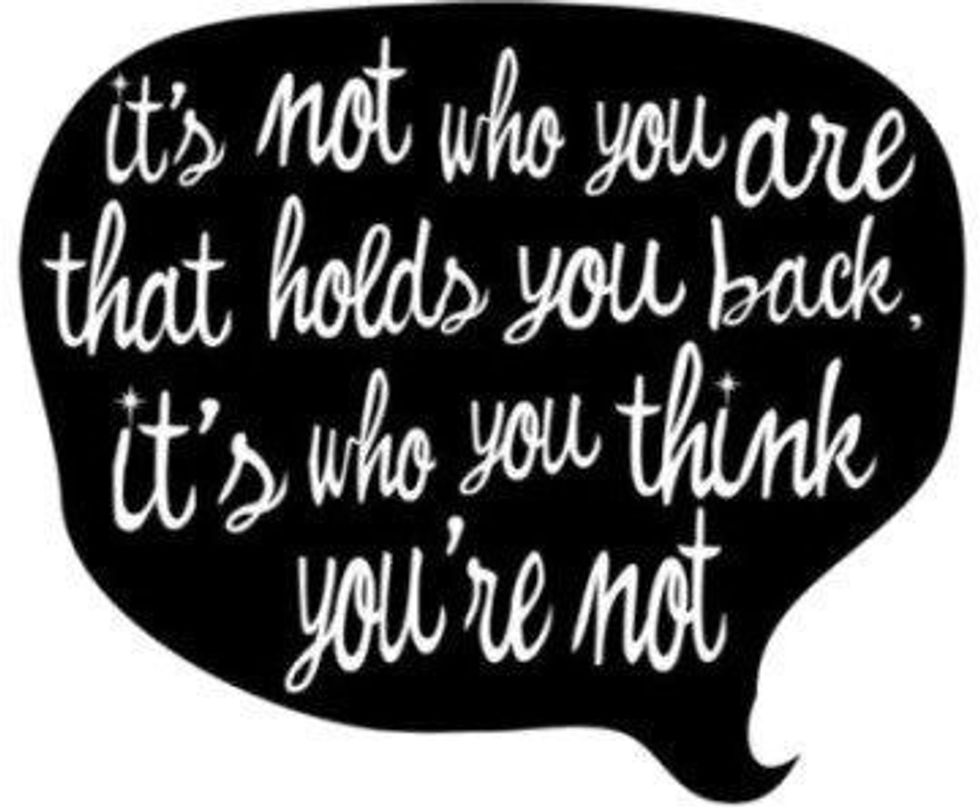During the summer of 2015 before my sophomore year of college, I realized I had a problem. I could have been interning at a big company or perhaps exploring foreign cities like many of my peers. Instead I was back at the part-time job I’d snagged in high school. And the worst part was that I was the only employee there who had not gotten a raise in the year and a half I’d worked there.
Why should I get an internship, though? I probably wasn’t qualified anyway. And why did I deserve to ask for a raise when I only worked during summer and winter breaks? There was a pattern in my thinking: I didn’t feel qualified to move forward. I felt I didn’t deserve to move forward. I felt that the strengths and experiences I’d outlined in my resume weren’t “real”; I felt that I was faking it, and that if I had landed a professional internship, they would have quickly realized I wasn’t ready for the tasks at hands.
I later learned that I wasn't alone in experiencing these feelings. In the fall, my mom sent me an email with a link to an article about a thing called “Imposter Syndrome” and suggested I check it out. “Impostor syndrome is feeling like you don’t deserve something that you actually earned, even if other people or facts show that you do deserve it,” the article read. It’s the phenomenon that, despite a resume filled with qualifications, top-notch interview skills, and a detailed LinkedIn page, your doubts are greater than your confidence.
Imposter Syndrome is irrational. The mind tricks a person into thinking he or she doesn’t deserve to take the next step: a promotion, new job, internship, etc. It’s the idea that a person’s past successes happened by chance rather than as the result of hard work, talent, and skill. Essentially it’s the root of our tendency to undermine our achievements by basing them on timing or luck.
It turns out that Imposter Syndrome is common. According to a report in the International Journal of Behavioral Science, 70 percent of millennials have experienced it. Perhaps this is because we can compare ourselves to others more than ever. We see what others post on Facebook, Twitter, and Instagram, and it can be impossible not to compare our achievements to theirs. And as we all know by now, the versions of ourselves we advertise on social media are the best versions not the unfiltered interiors.
No one is immune to Imposter Syndrome. Even Maya Angelou once said, “I have written eleven books, but each time I think, uh oh, they’re going to find out now. I’ve run a game on everybody, and they’re going to find me out.” That’s right, world-renowned poet, author, and civil rights activist Maya Angelou experienced Imposter Syndrome.
So own your resume. Embrace your experiences, strengths, and talents as your own. You are more than qualified for the internship, promotion, scholarship, new career, or whatever your next step may be. You don't have the same skillset as the person next to you, but your strengths are unique and your own. As long as we let our self-doubt control us, we prevent ourselves from moving forward. And remember: The person interviewing you in a big, fancy office could have once felt as unsure as you do. One day, the person with the big, fancy office could be you.



















